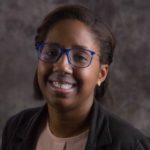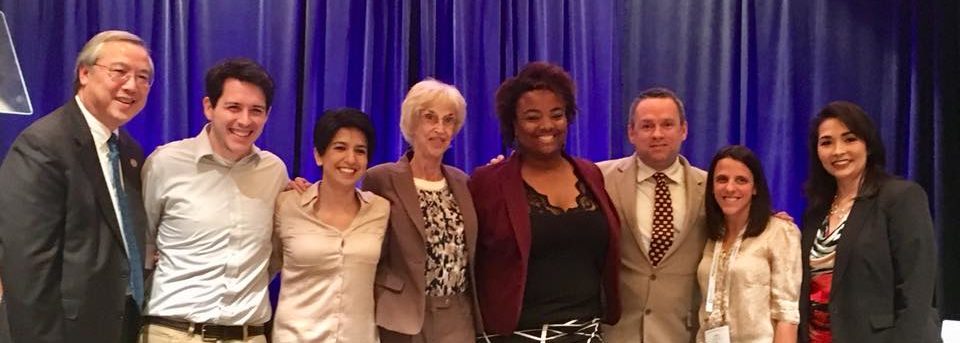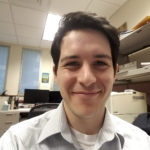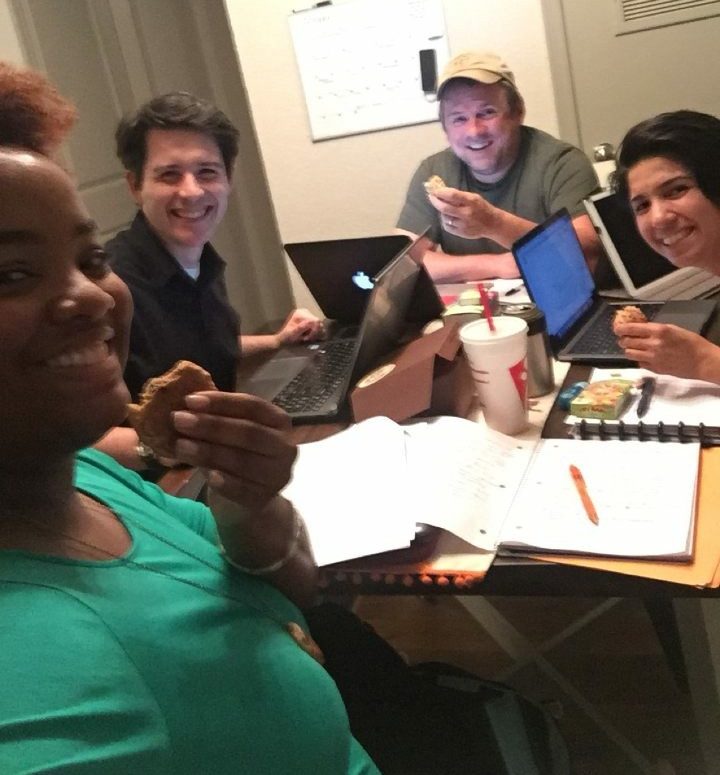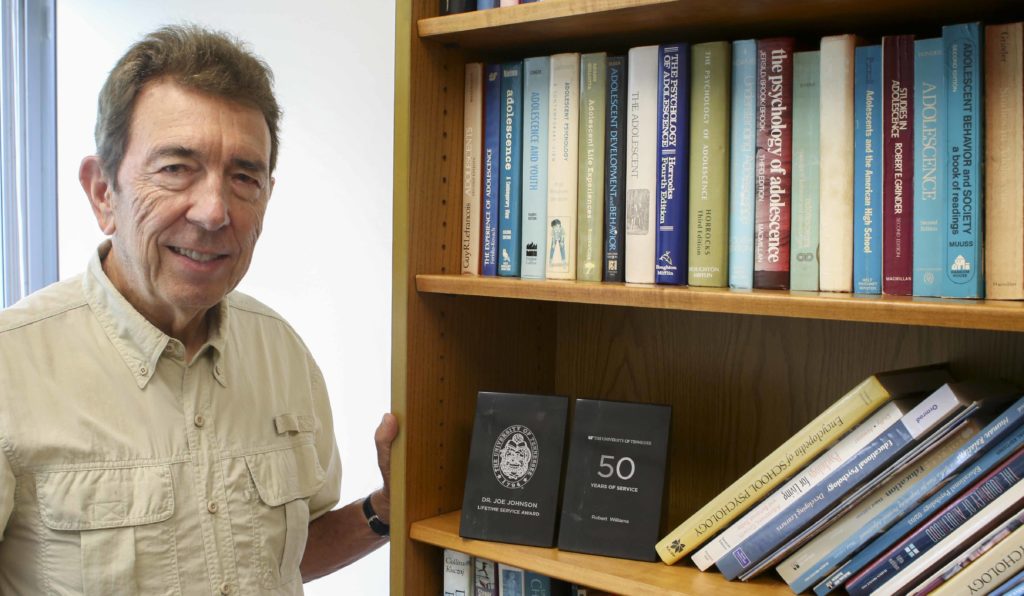Five School Psychology PhD candidates – Kendall B. Hauck , Pete Ignacio, Maya Mingo, Kala Taylor, and Victoria VanMaaren – were matched with APA-accredited internships.
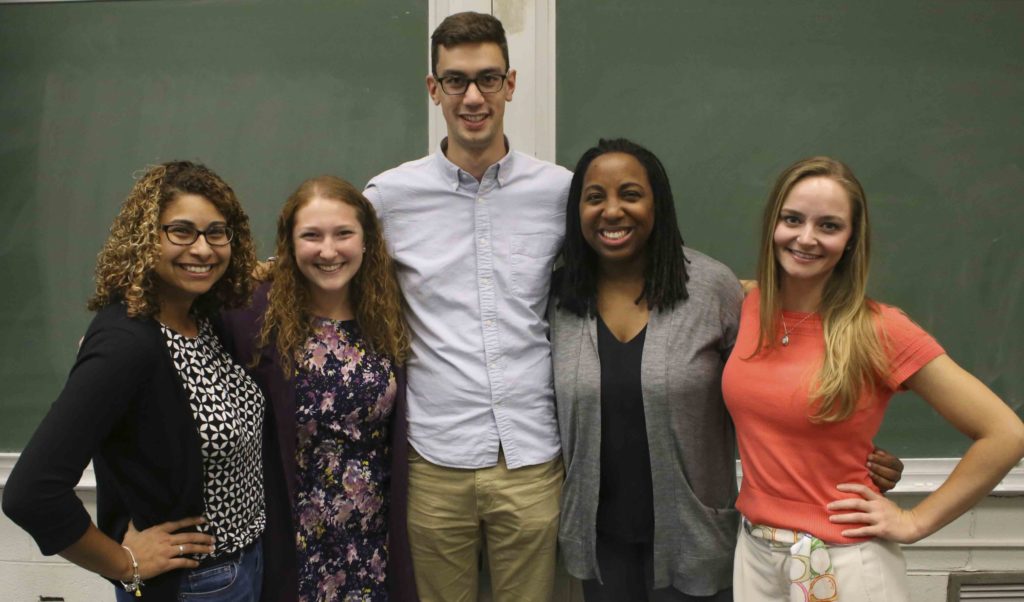
To become a licensed psychologist, all school psychology doctoral students must have completed an internship. Internships accredited by the American Psychological Association (APA) are highly sought out, yet a large number of applicants go unmatched. In 2018, over ten percent of applicants were not matched with an APA-accredited internship.
Read below to see where each of the five will be interning and their experiences of the process.
Kendall B. Hauck
Tennessee Internship Consortium
Sweetwater City Schools
What was the application process like?
The application process was somewhat complex because I had to be really diligent and organized in order to keep up with all of my clinical hours, school-based hours, and specific demographic information of the clients that I saw/with whom I worked. Thankfully, our program set us up to be successful by devoting an entire class to preparing us for the application process. Also, from day one of the program to year four, we were regularly encouraged to diligently track our hours so that we would be ready.
How do you feel about being matched?
I’m happy and thankful, because one of my career goals is to become a licensed psychologist. We were also strongly encouraged to complete our internship year at an APA-accredited internship
What type of work will you be doing at your internship?
I will act as a school psychologist at my internship site. I view this as “on-the-job training,” since I want to eventually work in a school district in Tennessee. I also find it very comforting that I will have a lot of supervision at this site.
How do you feel about staying in Tennessee?
I fell in love with Tennessee after spending so many years in this state. Also, I am planning to settle down in Nashville since that is where my fiancé is working.
Is there anything else you’d like to say?
I think that this will be a good opportunity for me. I look forward to applying the skills that I have learned so far in a new setting that resembles the kind of work that I want to do once I complete my internship.
Pete Ignacio
Tennessee Internship Consortium
Anderson County School District
What was the application process like?
The application process was stressful and complicated. There were a lot of details to go through, and a ton of deadlines to meet. However, Merilee McCurdy, associate professor, teaches a course where we completed every step of the way together as a cohort. The course was incredibly helpful and I can’t imagine being in a program without that support.
How do you feel about being matched?
It feels great. Being matched with an APA-accredited internship gives us the most amount of options as we start our careers. Completeing a non-APA internship wouldn’t be taking full advantage of the program here at UT.
What type of work will you be doing at your internship?
I’ll be doing assessment and consultation at an elementary school. There’s a big need for behavioral consultation both for specific students and classrooms, as well as school and district wide interventions.
How do you feel about staying in Tennessee?
I feel great about staying in Tennessee. Knoxville has really grown on me and I’m looking forward to staying a little bit longer. Plus, my wife has a job here with UT so staying local so she could keep her job was a big priority.
Is there anything else you’d like to say?
I’m really excited, a good friend of mine is currently at the site I’ll be at come the fall, so we can have a really well coordinated hand-off. I think it’ll be a great opportunity to continue working on some projects that were started last year, and to go in my own direction as well.

Maya Mingo
Louisiana School Psychology Internship Consortium
Tangipahoa Parish School System
What was the application process like?
The application process was a real rollercoaster drop! It required a lot of organization and detail, but was also very fun and anxiety inducing! Considering all that was required, I felt that Merilee McCurdy’s, associate professor, timeline and oversight made getting all the required materials in order a lot less stressful. However, traveling to different states and catching multiple flights during the winter months certainly can take a toll on your nerves! Overall, I enjoyed traveling to new places, meeting new people, and learning that our program had truly prepared me to succeed during this process.
How do you feel about being matched?
I am delighted and overjoyed to be matched with an APA-accredited internship site. Not only that, but I was also matched with my top choice! It doesn’t get much better than that! During the application and interview process, it’s so easy to psych yourself out and start fearing that you won’t match anywhere at all. In the end, though, everything worked out perfectly for me, and I couldn’t have hoped for a better outcome!
What type of work will you be doing at your internship?
During my internship year in Louisiana, I will in many ways serve in the traditional role of a school psychologist at three different schools. As such, I will serve as a member of a Pupil Appraisal Team. My roles on this team will include administering assessments to determine eligibility for special education services, providing psychological services for students whose IEPs require them, assisting with behavioral interventions, and attending collaboration and consultation meetings with multidisciplinary teams within the schools.
How do you feel about moving to Louisiana?
I’m ecstatic to have been matched to an internship site in Louisiana! Especially because I had already lived there for 12 years before attending grad school at UT. I have so many great friends and so much support already available to me in that area that I can’t imagine a better place to be able to bring closure to this final leg of my doctoral journey.
Is there anything else you’d like to say?
I’m just looking forward to building upon the great foundation of knowledge that has already been imparted to me by my professors and supervisors at the University of Tennessee. I hope to make them proud and to serve as a positive reflection of our School Psychology program.

Kala Taylor
Nebraska Internship Consortium in Professional Psychology
Boys Town Behavioral Health Clinic
What was the application process like?
It was just like applying to graduate school, lots of paperwork!
How do you feel about being matched?
Very happy, it will also make the licensure process much easier!
What type of work will you be doing at your internship?
My placement is in the Boys Town Residential Track, so most of my time will be spent conducting individual and family therapy with youth with a wide variety of referral concerns. I will also be facilitating group therapy and providing consultation to Boys Town staff.
How do you feel about moving to Nebraska?
Both nervous and excited. Omaha is a neat city; I’m excited about the opportunity to explore a new place and grateful I get to return home to Knoxville after my year there.
Is there anything else you’d like to say?
I am thankful to have matched with an internship that will allow me to expand my clinical skills. Additionally, I am so grateful for the strong training I received through UT, and the amazing mentors who encouraged me and helped me to achieve my goals.
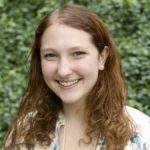
Victoria VanMaaren
Tennessee Internship Consortium
Lenoir City Schools
What was the application process like?
Applying and interviewing for internships was definitely stressful when combined with a busy year – despite the stress, though, I felt incredibly supported by our faculty as well as my cohort. I always had someone to talk to about any detail of the process and I can’t say enough about everyone’s support!
How do you feel about being matched?
It feels incredible! Throughout my time at UT, I have always had matching with an APA-accredited internship and becoming a licensed psychologist as a goal, and it feels great to be one step closer.
What type of work will you be doing at your internship?
I will have a traditional school-based placement, which involves completing initial evaluations and re-evaluations for special education services and consulting with teachers and other school staff.
How do you feel about staying in Tennessee?
I have absolutely fallen in love with Knoxville during my time here, and I’m overjoyed to be staying here. I can’t imagine going through this process anywhere else with anyone else!
Is there anything else you’d like to say?
I’m excited to get started! Also I’d like to give a shout out to everyone who has supported me through this journey – I couldn’t have done it without any of you! Let the journey begin!
